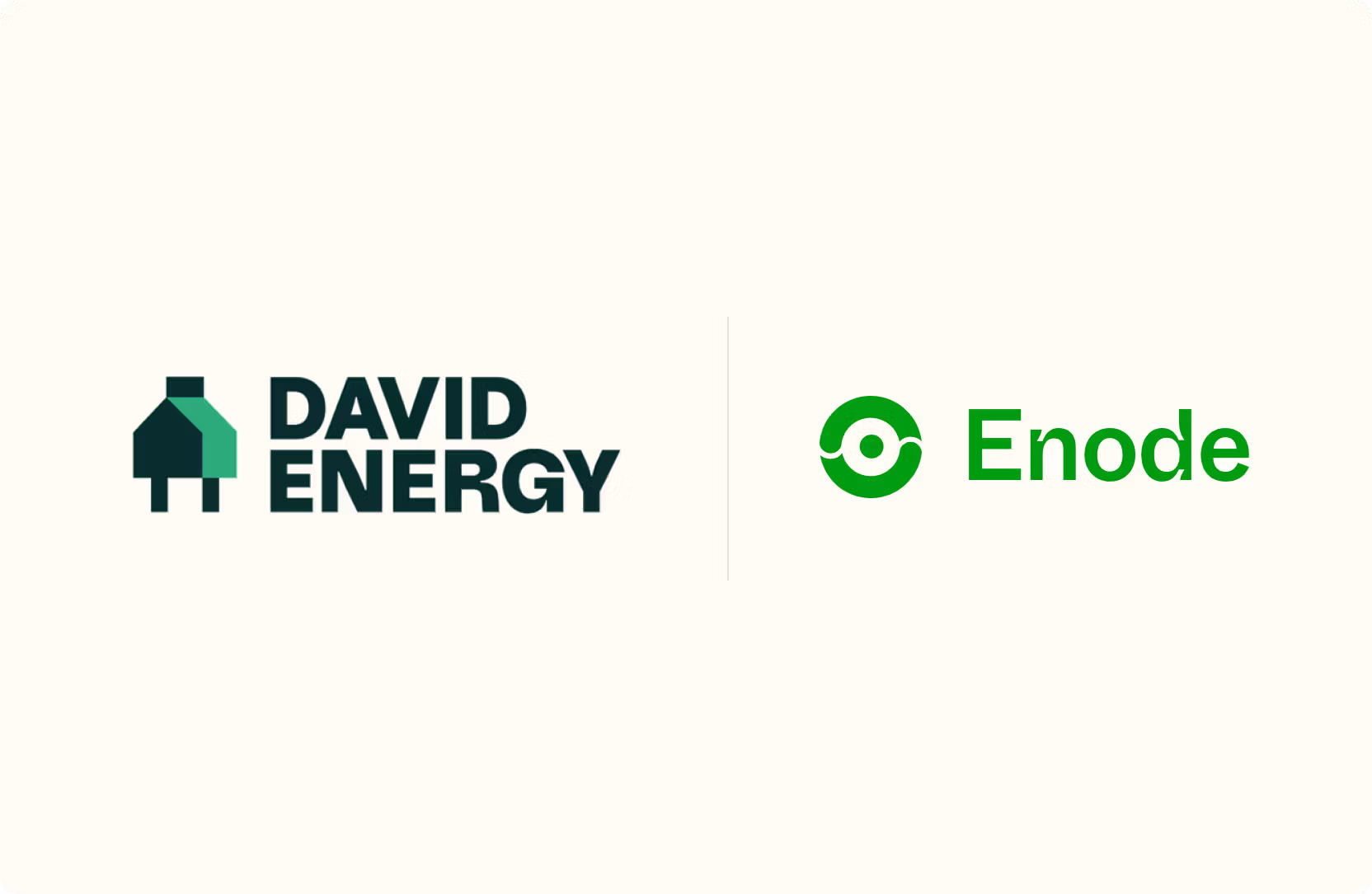David Energy partners with Enode to build the clean energy grid of the future

Exciting news! We’re partnering with David Energy – a software-powered electricity supplier that’s committed to providing clean, affordable energy.
David Energy’s mission is to build a better future by building a better grid. It brings electricity supply and demand response into a single platform, so homes and businesses can unlock the power of their energy resources, and contribute to a cleaner, cheaper and more resilient energy grid.
With the help of Enode’s API, David Energy’s residential customers are now able to connect their EVs to the David Energy platform, and automatically optimize them to reduce charging costs and environmental impact. Commercial customers are able to connect and optimize their thermostats; functionality which will soon be available to residential customers, too.
David Energy provides a comprehensive energy management platform
David Energy is a new kind of power company. Not only does it sell electricity to residential and commercial customers, it also enables them to participate in previously inaccessible energy markets, and realize additional value from their energy devices via demand response programs.
The David Energy software platform gives customers better visibility and control over their energy usage. David Energy leverages the power of software to integrate with and intelligently manage a range of energy devices, including EVs, thermostats and more. Its proprietary dispatching algorithm responds to real-time grid conditions, and combines them with customer preferences to identify optimal charging and usage patterns. By optimizing energy devices, David Energy aims to accelerate the transition to a cleaner, more resilient grid system.
Enode enables connectivity and communication between decentralized energy devices
Enode’s industry-leading API provides vital connectivity between the David Energy platform and hundreds of energy devices. With Enode, David Energy can seamlessly connect to customer energy devices through a single integration, and securely access their data.
Using Enode’s API allows David Energy to simplify system architecture and increase the number of customer devices supported. David Energy can bring products to market faster, and with easier customer onboarding, than building and maintaining hundreds of individual device integrations.
Enode makes life easier for David Energy customers too, who can set up and manage their energy devices easily and securely, and without the need for additional hardware. Initially, residential customers will be able to connect and manage their EVs through the David Energy platform. They can take advantage of smart charging and demand response opportunities to save on their energy bills, and optimize their use of energy to low-carbon sources. Functionality for home batteries and thermostats is upcoming on the roadmap.
David Energy’s connected offering for commercial customers focuses on quick serve restaurants and gyms, who are able to manage their thermostats via the platform to lower energy costs and improve operational efficiency.
Empowering consumers to accelerate the energy transition
David Energy CEO and co-founder, James McGinniss, said, “David Energy firmly believes that customers should be in the driver’s seat when it comes to creating the energy grid system of the future. By empowering customers to manage their energy consumption, we can build a more efficient, more reliable and more powerful energy model. Partnering with Enode enables us to connect to a growing network of intelligent energy devices, and communicate with them to inform and optimize the flow of energy. Enode helps us create a seamless experience, which is critical to accelerate our transition to a more sustainable energy system.”
Enode CRO and co-founder, Thorvald Thorsnes, said, “We are delighted to partner with David Energy to further our shared goal of creating a clean, efficient and software-enabled grid. Together, we’re putting innovative and sustainable energy solutions in the hands of customers, so they can take control of their energy consumption and costs.”
